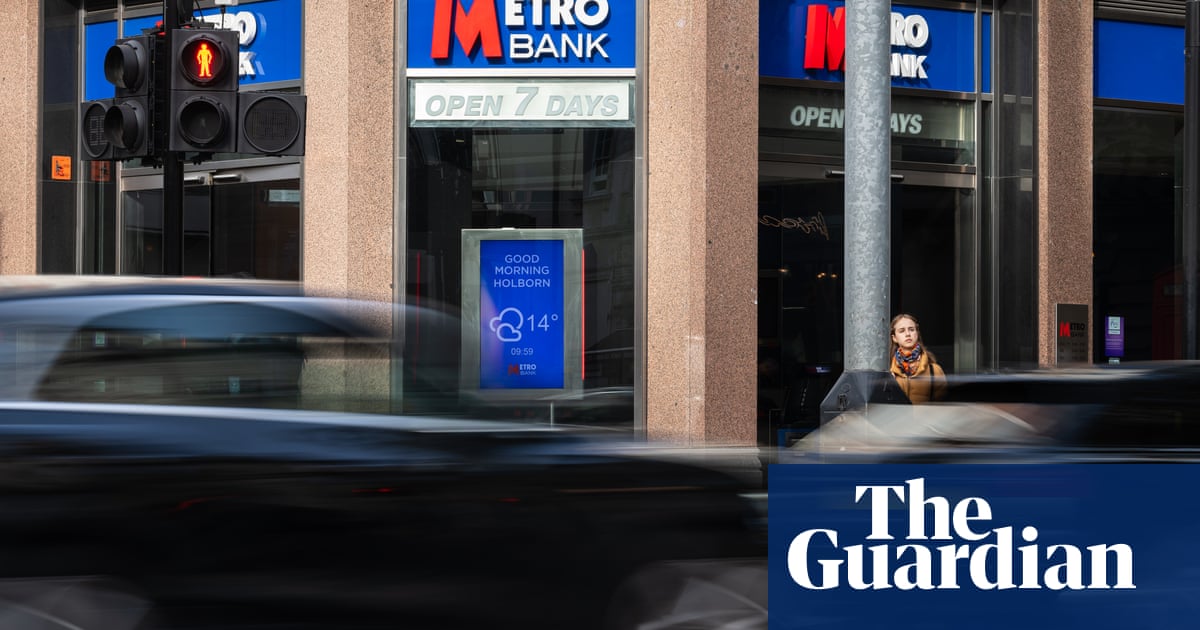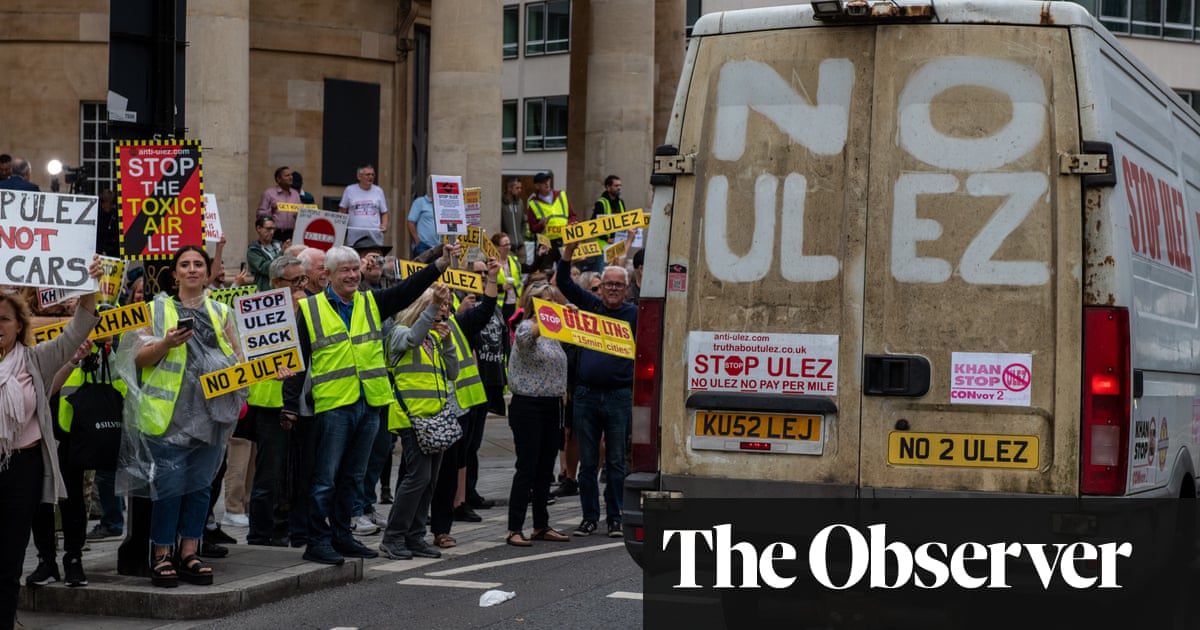
Metro Bank’s shares plunged by 30% on Thursday after it emerged on Wednesday night that the lender was preparing to ask investors for hundreds of millions of pounds to shore up its balance sheet. Here’s what it means for the bank and its customers.
Is Metro Bank in serious financial trouble?
Metro Bank, which became the first new high street bank in the UK for more than a century when it was launched by the American billionaire Vernon Hill in 2010, says it is not facing any immediate threat and is operating as normal. Metro has about 2.7 million customers and 76 branches, and holds about £15.5bn worth of UK customer deposits.
Why does Metro need the money?
Metro needs more money to ensure it can continue to expand. Without that extra funding, its ability to lend could be put at risk.
The issue is that the bank is operating at the edges of its capital requirements, which refers to the amount of assets held by the bank that can be sold off at short notice if it faces unexpected losses.
Metro was hoping to reduce that requirement by getting permission from the Bank of England to use its own internal models to assess its mortgage risks. However, that request was denied in early September, triggering a steady sell-off over the last few weeks.
The bank is still operating within the regulator’s capital limits, but is doing so within a “buffer”, meaning it will need to raise more cash from investors to grow the business in any meaningful way.
There is some urgency though, given that £350m worth of its debt needs to be refinanced – requiring investors to put forward a new tranche of cash – as early as next year, and no later than October 2025.
I have a Metro Bank account, or mortgage – what does this mean for me?
There is no immediate implication for customers.
There is a chance that Metro could sell off a portion of its mortgage book to a willing buyer as part of its fundraising drive. That could mean some customers end up having their home loan managed by another lender, or investor, in the future.
Metro has reportedly approached rivals including Lloyds and NatWest about buying £3bn worth of its home loans. All three banks declined to comment.
Separately, if Metro struggles to raise capital, it could be forced to pause, or reduce the number of loans and mortgages it offers to customers.
So why are people worried?
Investors are on high alert for wobbles in the banking sector following the mini-crisis in March that resulted in the surprise collapse of three regional US lenders, including Silicon Valley Bank. Switzerland’s largest lender, Credit Suisse, failed weeks later.
There are also some concerns about Metro’s future profitability. On Wednesday, the rating agency Fitch placed it on “rating watch negative”, saying there were short-term risks to its “business model stabilisation, capital buffers and funding have increased”.
But it is understood that the Bank of England’s watchdog, the Prudential Regulation Authority (PRA), is continuing standard monitoring of Metro’s operations.
Metro’s chair, Robert Sharpe, met with the PRA on Thursday, but the lender’s spokesperson said this was a “longstanding” meeting that was planned before the fundraising news hit.
“As ever when something goes wrong in the banking sector, there will be concern about contagion risks,” Russ Mould, investment director at AJ Bell, says. “But, in truth, Metro Bank has been struggling for years to get on a path to sustained profitability and has made lots of mistakes.”
Has Metro faced trouble before?
Metro was left reeling after an accounting scandal in 2019, when it underreported how much capital it needed to hold against its risks.
The scandal prompted the biggest single-day collapse in a UK bank’s share price since the global financial crisis a decade earlier. Months later, social media rumours over its financial health led to customers pulling funds and emptying safety deposit boxes.
The bank and two former executives were later fined more than £10m for misleading investors.
How will Metro raise the money it needs?
It will ask investors for the cash. Metro said in a statement on Thursday morning that it was considering a “range of options” including the sale of shares, bonds or some of its assets, which could include selling-off some of its mortgages to a willing buyer.
However, analysts at the investment bank KBW said it was “tough” to see how Metro could lure new investors, who were likely to ask for high returns, given the risks.
That increases the likelihood that they will turn to existing investors for the funds. That could involve tapping top shareholders, including hedge fund Spruce House, and Spaldy Investments, a vehicle owned by the banking tycoon and one of Colombia’s richest men, Jaime Gilinski Bacal.
Spaldy became Metro’s largest investor after it beefed up its stake from 6% to 9% in early 2020. Bacal’s daughter, Dorita, serves as his representative on Metro’s board.
“Existing creditors and investors may feel they have no choice but to participate, though they are unlikely to do so with any great enthusiasm,” says Mould.
What is Metro saying?
The lender has pointed to the fact that it recently returned to profit, making £15m in the first six months of this year, having reported a £10.5m loss a year earlier.
Metro said that its forthcoming earnings report, expected by early November, would show “continued momentum in personal and business current account growth and customer acquisition, in line with expectations”.
“Metro Bank continues to be well positioned for future growth,” it added.











